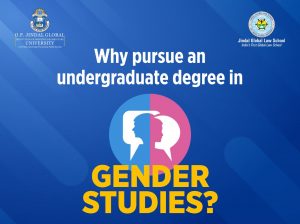Legal education has witnessed phases of incredible growth in India; but has the rapid rise of law schools come at a cost? Even as the country ‘boasts’ of over 1500 law schools and law departments, the reality for the majority does not look rosy. The almost uncontrolled expansion to simply meet the demand has missed out on the essence of quality, foregoing critical junctures in institution-building and creating instead, a mushrooming league of mediocre law schools. The time for serious reckoning, reflection and reimagination has come knocking hard on the doors of Indian academia.
On the flipside, coming from a golden era of success of the legendary National Law Universities, today, private universities are leading the charge with the resources and academic excellence to match global bests. Jindal Global Law School, O.P. Jindal Global University, Sonipat became the number one law school in India and among the top 150 worldwide, according to the QS World University Subject Rankings 2020. NLSIU Bengaluru ranked second in India and featured in the 151-200 band worldwide. While the NLUs and good private institutions like JGLS have upped the bar in a big way, there’s still a long way to go for post-graduate legal education in India. What is needed to pave the way forward?
Keeping pace with a rapidly evolving legal profession
The turn of the 21st century marked an era of exponential growth and complex changes in society. The need for legal professionals has grown manifold with globalisation and the modern ways of life. What kicked off with the popularisation of corporate law in the early ’90s as the global economy opened up, has now evolved into a powerhouse profession with immense scope. As the economy, trade, society, politics, technology, and other sectors mature, they expose growing gaps for legal professionals to fill.
Emerging new branches like environmental law, cyber law, sports law, family law, health care law or intellectual property law, constantly evolving takes on traditional fields, and so much more, have led to global law practice growing in both numbers and capability. As the market for legal jobs expands, many talented young Indian students are vying for legal careers. Academia has to rise to the growing opportunity of the industry.
Catering to contemporary needs with a global perspective
In the context of talent blooming and globalisation of careers, the pressure on higher education institutions is enormous. Gone are the days of antiquated teaching with long-drawn lectures, note-taking, rote-learning and textbook-crunching. The very way law is taught and studied is transforming, at least at the top rung of institutions. Unfortunately, the tail end is long and trailing behind in innovative pedagogy, curriculum and practices.
As the boundaries of legal practice too blur between countries, Indian institutions have to nurture young people to be competitive in the global world. The academic approach has to change from an inherently Indian context to understanding legal conversations of the world—through international law courses, comparative studies, and more. Global faculty, exchange programmes, participation in international competitions, conferences, etc. are a good way to prepare professionals well-versed with the global language of law.
Promote interdisciplinary research to meet the challenges of the world
While offering a well-designed curriculum and bringing in subject-experts to deliver an up-to-date perspective builds a strong foundation for postgraduate training, a focus on research holds equal merit in the eyes of applicants.
The backbone of a modern, flourishing legal higher education landscape is multidisciplinary research—to generate new ideas, solve complex problems, or even reform dated practices. Institutions can inspire legal imagination by providing exposure to relevant themes in the world. Competent post-graduates must hone the skills to analyse the world we live in and identify ways to evolve the legal system befitting emerging needs, challenges and changes.
Research-driven institutions will continue to triumph as storehouses and creators of knowledge. It is an abiding focus on research that puts leading law schools a cut above run-of-the-mill programmes.
A progressive approach to hiring qualified teaching faculty savvy to contemporary needs
One of the biggest challenges of higher education in India has been a paucity of good teachers. One reason is that many law students and teachers have found better opportunities for study, research or academia abroad. In a way, it has been a vicious circle that can also be higher education’s greatest virtue. Postgraduate programmes need good faculty to succeed, and good postgraduate programmes can produce those future professors. Promoting research initiatives is one way to invite the best minds of modern academia into India.
Incentives to good lawyers and academicians to commit to research and teaching have been long-since lacking, especially in public institutions. Roping in highly-trained faculty members from over the world, who are in sync with the changing times, is critical to nurturing young lawyers today. The motivation can span from financial packages to—and perhaps more importantly—the academic autonomy to design and develop courses.
Another way is to create a strong connection with foreign universities, so that students can benefit from insights from different parts of the world. Joint-teaching, faculty and student exchange programmes, and collaborative research opportunities can lead to an upward curve in the transfer of knowledge between students and academicians across the globe.
Uplifting quality of mediocre law schools
The utopian ambition of bringing all law schools to par may be a far-fetched dream, but at least slowing down the rapid rise in numbers, and instead investing in improving the quality of existing schools must take priority. In fact, some academicians and policy-makers have suggested shutting down a significant number of law schools. In a two-pronged approach, average law schools must be advanced and yet other poorly-performing colleges and departments could be closed down systematically.
While the upper crust of public legal institutions receive the vast majority of government support and are at the centre of much legal education policy reform, the hundreds of other law schools and law programmes in central, state universities and affiliated colleges have been falling behind. The continued negligence has spawned a dilution of legal education and profession as an unfortunate predicament of its own making. Rectifying it calls for urgent policy action and quality assessment.
Create courses & careers compelling enough to keep Indian talent home
Many students who can afford a world-class legal degree anywhere in the world do choose the best of foreign universities over Indian law schools. Moreover, many young Indian lawyers have made it big with international law firms in other countries. While it is a matter of pride that Indian lawyers are making their mark on a global platform, it is also important to consider that they could contribute to developing the domestic legal system. An exodus of highly trained professionals is a loss for any country.
It is these students and future professionals that Indian law schools have to attract and retain. They need to be provided viable, comparable opportunities back home in India. This means domestic law schools have to be prepared to offer the kind of cutting-edge contemporary education at any top global university. By building a world-class curriculum, hiring global faculty, introducing up-and-coming courses, niche specialisations and allowing research opportunities, Indian institutions can climb up to the global standards.
Creating opportunities for less privileged students
Opportunity has to be the cornerstone of higher education, especially in a developing country teeming with talent across socio-economic strata. The onus rests on both private and public law schools to provide equal access to quality education. Increased funding, scholarships and financial aid are key. On the one hand, private institutions with world-class offerings must be more inclusive and allow for more merit-based scholarships for students from economically weaker backgrounds to make inroads into the top league. At the same time, the more reasonable public sector must boost their capacity to offer a good education.
Technology in the classrooms and courts of law
Technological interventions are already disrupting the legal landscape with the promise of virtual courtrooms and more. Artificial Intelligence and machine learning-based services that boost research capacities, support litigation and the more objective of legal processes have the potential to revolutionise the legal system, saving resources and strengthening efficiency.
Revamping curriculum to be cognisant of legal technological advancements is the need of the hour. This has become especially relevant in the times of the Covid-19 crisis. High-quality virtual learning opportunities and legal practices have been put to the test. It will have a lasting impact, even post-pandemic. This is a good time for law schools to leverage digitisation in the curriculum, offer more online courses and train a generation of tech-savvy lawyers.
JGLS recently launched India’s first Online LLM in Corporate & Financial Law in partnership with UpGrad, a popular ed-tech platform delivering cutting-edge courses. The one-year programme is totally digitised, from instruction to evaluation, offering working professionals the chance earn a higher degree without compromising on their careers. Though some distance learning programmes and part-time LLM programmes have been running in other institutions, a completely online course that can be completed within a year poses a strong advantage for interested candidates and a cue for other Indian law schools to follow suit in the future.
Revamping programme formats and offering multiple specialisations
The very essence of postgraduate education in any stream is to enable students to specialise in areas of study. In the legal sphere, this ranges far and wide, covering a host of conventional, emerging and even niche domains. JGLS took a big stride in modernising programmes with the online LLM. The premier law school also offers both residential LLM programmes with specialisations in Corporate & Financial Law, International Trade & Investment Law, Intellectual Property Rights & Technology Law, Taxation Law, Competition Law, and General Legal Studies, as well as a non-residential LLM in Environmental Law, Energy & Climate Change in collaboration with World Wide Fund for Nature, India. In the multidisciplinary framework of O.P. Jindal Global University—which was as recently as 10th June, 2020 named the best private university in India by the QS World University Rankings 2021—students are able to cross-register for courses across other schools.
A major reason for the success of private law schools like JGLS in India and global forerunners like Harvard Law School is that they are housed in multidisciplinary universities as opposed to stand-alone institutions. This format has both in practice and in principle been more contemporary and more capable of producing the kind of superiorly skilled lawyers needed in today’s world. It is a cue for other Indian law schools to strengthen multidisciplinary opportunities.


